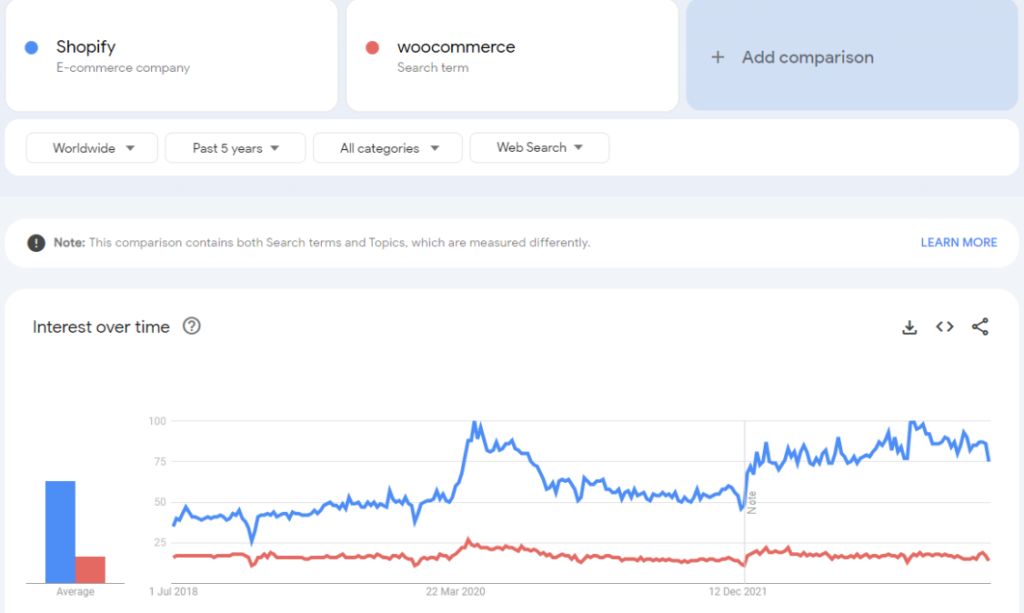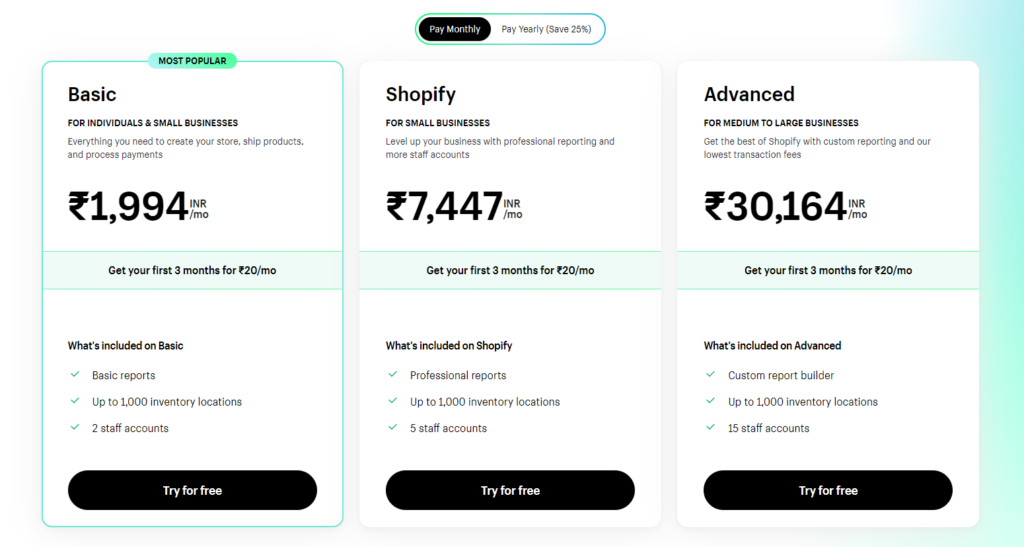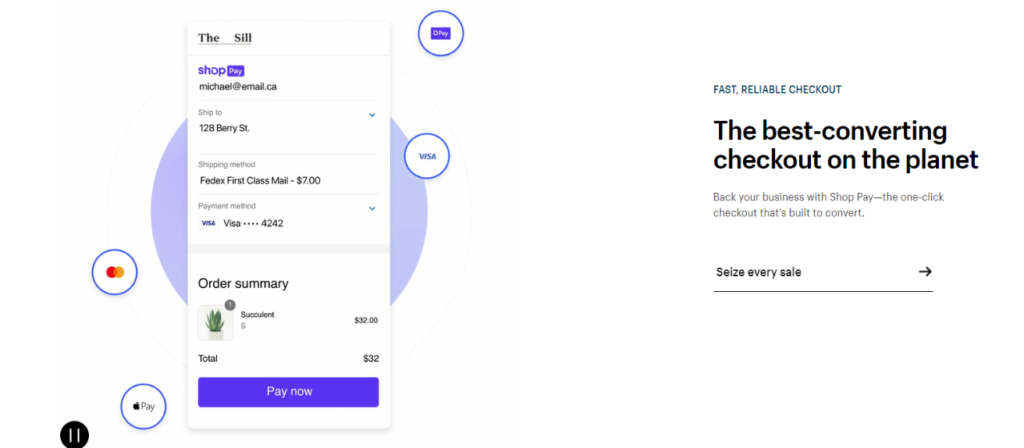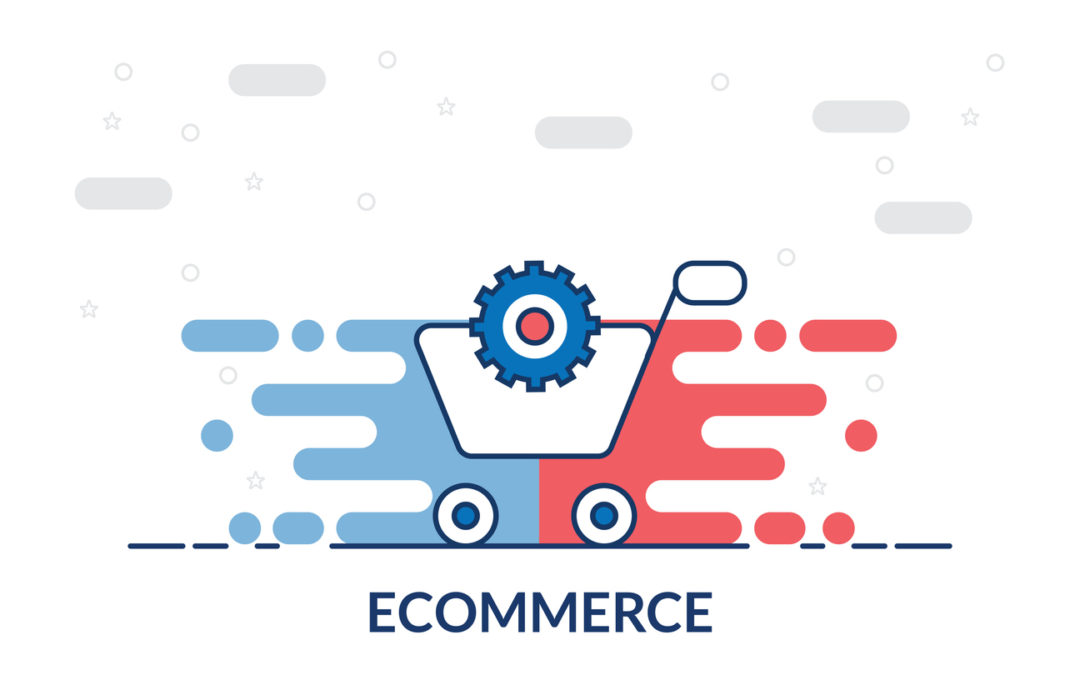Table of Contents
E-commerce shopping is an important and growing trend. It offers a number of advantages for both consumers and businesses. In 2022, global e-commerce sales reached $4.9 trillion, and it is projected to grow to $6.7 trillion by 2025.
This growth is being driven by a number of factors, including the increasing availability of broadband internet, the rise of mobile devices, and the growing popularity of online marketplaces.
As a business owner, you need an e-commerce platform that is scalable, affordable, secure, and packed with features. WooCommerce and Shopify are two of the most popular platforms, but they each have their strengths and weaknesses.
If you are looking for an e-commerce platform to help you scale up your business, you’ve come to the right place.
What is an E-commerce Platform?
E-commerce platforms are content management systems (CMS) that allow businesses to manage their online stores. They can be used to create & maintain product catalogues, track purchases, & manage customer relationships.
E-commerce platforms are available for businesses of all sizes and types, and they can be a valuable tool for increasing sales and improving customer satisfaction.
What are the Key Features of E-commerce Platforms?
- Product management
- Order management
- Customer relationship management (CRM)
- Security
- Scalability
Which E-commerce platform is popular – Shopify or Woocommerce?
To assess the popularity of WooCommerce and Shopify e-commerce platforms worldwide, we checked Google Trends. The trend shows that Shopify is a more popular choice for online stores than WooCommerce.

However, it is important to note that Google Trends only measures search interest, and it does not take into account other factors such as user satisfaction or conversion rates. Ultimately, the best platform for you will depend on your individual needs and preferences
WooCommerce: Build your e-commerce empire, your way.
WooCommerce is an open-source e-commerce plugin for WordPress. It is designed for small to large-sized online merchants using WordPress. Launched on September 27, 2011, the plugin quickly became popular for its simplicity to install and customise and for the market position of the base product as freeware.

Shopify: Build your online store, worry-free.
Shopify is a popular ecommerce platform that simplifies the process of creating an online store, accepting payments, and managing inventory. It eliminates the need to handle technical aspects like web hosting, security, and caching.

Woocommerce vs Shopify – Quick Comparison
| Feature | Shopify | WooCommerce |
| Customization | Limited. Limited free and paid apps that are all reliable. | Extensive. Extensive options to choose from, allowing you to build a bespoke website without many limitations. |
| Marketing | Offers a built-in marketing suite that includes tools for email marketing, social media marketing and SEO. | Does not have a built-in marketing suite, but it does offer a wide range of marketing plugins that you can install to add these features to your store. |
| Basic Price | Starts at INR1994/month. | Free, plus the cost of hosting. |
| Transactions | Charges are 2% per transaction if you use a third-party gateway. | It doesn’t charge transaction fees when you use a third-party payment gateway. |
| Hosting | Shopify hosts your store on their servers. | Self-hosted platform, which means that you need to purchase your own web hosting and domain name. |
| Technical Knowledge | This means that you don’t need to worry about hosting or managing your servers | This gives you more control over your store, but it also requires more technical knowledge to set up and maintain. |
| Platform | Proprietary platform. you are limited to the features and functionality that Shopify offers. | An open-source platform. This means that the code is available for anyone to view and modify. |
| Security | Shopify takes security seriously. | WooCommerce is a secure platform, but it is important to keep your WordPress installation up to date and to use a security plugin to protect your store. |
| Scalability | Scalable platform, which means that you can easily grow your store as your business grows. | Scalable platform, but it may require more technical expertise to scale your store as your business grows. |
| Multichannel Selling | Won’t cost you to integrate your store with those channels. | Many free & paid plugins are available for integration. |
| Customer Support | 24/7 customer support. | Does not offer direct customer support. |
#1 Ease of Use – Woocommerce vs Shopify
Shopify
Shopify is a hosted platform, which means that all of the software and hosting are taken care of for you. This makes it very easy to get started with Shopify, even if you don’t have any technical experience. Shopify also has a very user-friendly interface, which makes it easy to manage your store and add new products.
Woocommerce
WooCommerce is a self-hosted platform, which means that you need to purchase your web hosting and install the WooCommerce software. This can be a bit more complex than using Shopify, but it gives you more control over your store.

#2 Pricing – Woocommerce vs Shopify
Shopify
Shopify has a monthly subscription-based & annual subscription-based pricing model, with plans starting at INR1994/month. These plans include all of the essential features you need to run an online store, such as web hosting, a shopping cart, and payment processing.
Shopify also offers a variety of add-on features, such as marketing tools, shipping integrations, and abandoned cart recovery.

WooCommerce
WooCommerce is a self-hosted platform, which means that you need to purchase your web hosting and install the WooCommerce software. WooCommerce is free to use, but you will need to pay for web hosting, themes, and plugins. The cost of web hosting will vary depending on the provider you choose, but it typically costs between $5 and $30 per month. Themes and plugins can range in price from free to $100 or more.
| Features | Shopify | Woocommerce |
| Basic Price | Starts at $29/month | Free |
| Hosting | Included | Not Included |
| Themes | Included | Purchased separately |
| Plugins | Purchased separately | Purchased separately |
| Add-ons | Available | Not included |
Ultimately, the best pricing model for you will depend on your individual needs and preferences. If you’re looking for a platform that is easy to use and doesn’t require any technical knowledge, then Shopify is a good option. If you’re on a tight budget, then WooCommerce is a good option.
#3 Transactions – Woocommerce vs Shopify
Shopify
Shopify takes care of the technical aspects of running an online store. However, if you use a third-party payment gateway instead of Shopify Payments, additional transaction fees may apply.
The transaction fees vary depending on the Shopify plan you choose. For example, with the Basic Shopify plan, you’ll incur transaction fees of 2.0% per transaction, while the Shopify plan reduces the fee to 1.0%, and the Advanced Shopify plan reduces the fee to 0.5%.

WooCommerce
WooCommerce provides a flexible and customizable platform for building online stores. Since WooCommerce doesn’t charge any transaction fees itself, the fees associated with payment gateways are the primary consideration.
Payment gateways like PayPal, Stripe, or others may charge transaction fees that vary depending on your location, the payment method used, and the specific gateway terms.
#4 Themes – Woocommerce vs Shopify
Shopify
Shopify has a wide variety of themes to choose from, both paid and free themes. The themes are designed to be easy to use and customise, even if you don’t have any coding experience.
Shopify themes are like pre-made outfits. They are designed to look good and be easy to wear, but you don’t have a lot of control over how they look. You can change the colours and fonts, but you can’t change the overall design.
WooCommerce
WooCommerce has a large library of theme stores, both free and paid. WooCommerce also offers a theme customizer that allows you to make changes to the look and feel of your theme without having to edit the code.
WooCommerce themes are like pieces of fabric. You can use them to create any outfit you want, but you need to know how to sew. You can change the colours, fonts, and layout of the theme, and you can even add new features.
| Features | Shopify | Woocommerce |
| Number of themes | Over 100 free and paid themes | Over 1,000 free and paid themes |
| Ease of use | Easy to use | Flexible and customizable |
| Code customization | Not possible | Possible |
| Theme editor | Yes | Yes |
#5 Which Ecommerce Platform is more secure – Woocommerce vs Shopify?
When comparing security, Shopify is often regarded as a more secure platform than WooCommerce due to its managed hosting environment and comprehensive built-in security measures.
Why Shopify is considered a more secured ecommerce platform?
Shopify’s automated security updates scan its platform for known security vulnerabilities regularly. If any vulnerabilities are found, Shopify patches them as soon as possible. Shopify also scans its platform for malware regularly.
If any malware is found, Shopify removes it. Shopify also monitors its platform for potential threats 24/7. If any threats are detected, Shopify takes action to protect its platform.
Why WooCommerce is considered to have relatively lower security measures in comparison?
WooCommerce is an open-source platform, which means that it is up to you to update its software and security features. This can be a more complex process than with Shopify, but it gives you more control over your store’s security.
WooCommerce releases security updates regularly, and it is important to install these updates as soon as possible. There are also a number of security plugins available for WooCommerce that can help you to protect your store.
#6 SSL Certification – Woocommerce vs Shopify
Shopify
To obtain an SSL certificate for your Shopify store, you don’t need to worry about the process as Shopify automatically includes SSL certification for all its stores. When you set up your store with Shopify, an SSL certificate is automatically installed and enabled for your domain, ensuring secure connections between your customers and your website.
Woocommerce
If you are using WooCommerce, you will need to obtain an SSL certificate yourself. This involves purchasing an SSL certificate from a trusted CA and configuring it on your web server. The specific steps may vary depending on your hosting provider or server setup.
#7 SEO Friendly – Woocommerce vs Shopify
WooCommerce and Shopify are both SEO-friendly platforms, but WooCommerce is generally considered to be more SEO-friendly out of the box.
Why woocommerce is more SEO-friendly than Shopify?
WooCommerce is built on WordPress, which is a search engine-friendly platform. WordPress has a number of built-in SEO features, such as Title tags, Meta descriptions, and Permalinks.
In addition to these built-in SEO features, WooCommerce also has a number of SEO plugins that you can use to further optimise your store for search engines.
Some of the most popular WooCommerce SEO plugins include Yoast SEO. It offers a wide range of features to help you optimise your store for search engines, including the Title tag and meta description optimization, XML sitemaps, Robots.txt file management and Keyword research.
Is Shopify SEO Friendly?
Shopify also has a number of SEO features and plugins, but they are not as comprehensive as those offered by WooCommerce. For example, Shopify does not have built-in title tags or meta descriptions.
However, Shopify does offer a number of SEO apps that you can use to add these features to your store. Some of the most popular Shopify SEO apps include SEO Suite and SEO Booster.
#8 Scalability – Woocommerce vs Shopify
Scalability in Shopify
Shopify is a hosted platform, which means that Shopify takes care of all the technical aspects of running your store, including hosting, security, and performance. This makes Shopify a good choice for businesses that are not technical or do not have the time to manage a self-hosted store. However, it also means that you are limited by Shopify’s infrastructure.
Scalability in WooCommerce
WooCommerce is a self-hosted platform, which means that you are responsible for setting up and managing your own web server and hosting. This gives you more control over your store’s performance and scalability, but it also means that you need to have the technical skills to manage a self-hosted store.
If you are willing to invest the time and effort into managing a self-hosted store, WooCommerce can be a more scalable platform than Shopify.
#9 Plugins and Interactions – Woocommerce vs Shopify
Plugins and Integrations in Woocommerce
WooCommerce is a self-hosted platform, which means that you have more control over the plugins and integrations that you can use. There are thousands of WooCommerce plugins available, and you can install any plugin that you want.
However, this also means that you need to be careful when choosing plugins, as some plugins can conflict with each other or cause security problems.
Plugins and Integrations in Shopify
Shopify is a hosted platform, which means that Shopify controls which plugins and integrations are available. Shopify has a smaller selection of plugins and integrations than WooCommerce, but these plugins are vetted by Shopify to ensure that they are compatible with Shopify and that they do not pose a security risk.
Here is a table that summarises the plugins and integrations of Shopify and WooCommerce:
| Feature | Shopify | WooCommerce |
| Number of plugins and integrations available | Less | More |
| Control over plugins and integrations | Less | More |
| Compatibility | Plugins and integrations are vetted by Shopify | Plugins are not vetted by Shopify |
| Security | Less risk of security problems | More risk of security problems |
#10 Marketing – Woocommerce vs Shopify
Marketing in Shopify
Shopify offers a built-in marketing suite that includes tools for email marketing, social media marketing, and search engine optimization (SEO). These tools can help you reach new customers, drive traffic to your store, and improve your conversions. Shopify also offers a variety of marketing apps that you can add to your store to extend its functionality.
Marketing in WooCommerce
WooCommerce does not have a built-in marketing suite, but it does offer a wide range of marketing plugins that you can install to add these features to your store. WooCommerce also has a large and active community of developers who create and maintain marketing plugins. This means that you are likely to find a plugin that meets your specific needs, even if it is not offered by Shopify.
#11 Customer Support – Woocommerce vs Shopify
Does Shopify offer Direct Customer support?
Shopify provides 24/7 customer support to assist their merchants with any questions, issues, or concerns they may have.
Their customer support team is available via live chat, email, and phone, ensuring that you can reach out to them at any time, regardless of your location or time zone.
Does Woocommerce offer direct customer support?
WooCommerce does not offer direct customer support like Shopify’s dedicated support team, the community resources and third-party assistance options can help you find solutions and overcome challenges you may encounter while using WooCommerce.
The WooCommerce documentation, community forums, and WordPress support ecosystem are valuable resources for obtaining guidance and answers during the setup process of your WooCommerce store.
Which platform is the Best – Woocommerce vs Shopify?
The best platform for you will depend on your individual needs and preferences. Choose Shopify for ease of use and minimal technical expertise. Opt for WooCommerce if you desire more control over your store.
If you are still not sure which platform is right for you, you can try out both Shopify and WooCommerce for free. Shopify offers a 3-day free trial, and WooCommerce offers a 30-day free trial.
During the free trial, you can create a store, add products, and start selling. This will give you a chance to try out both platforms and see which one is a better fit for your needs.
No matter which platform you choose, We at Wonkrew can help you get started and achieve your online sales goals. Learn more about our services & Contact us today.

